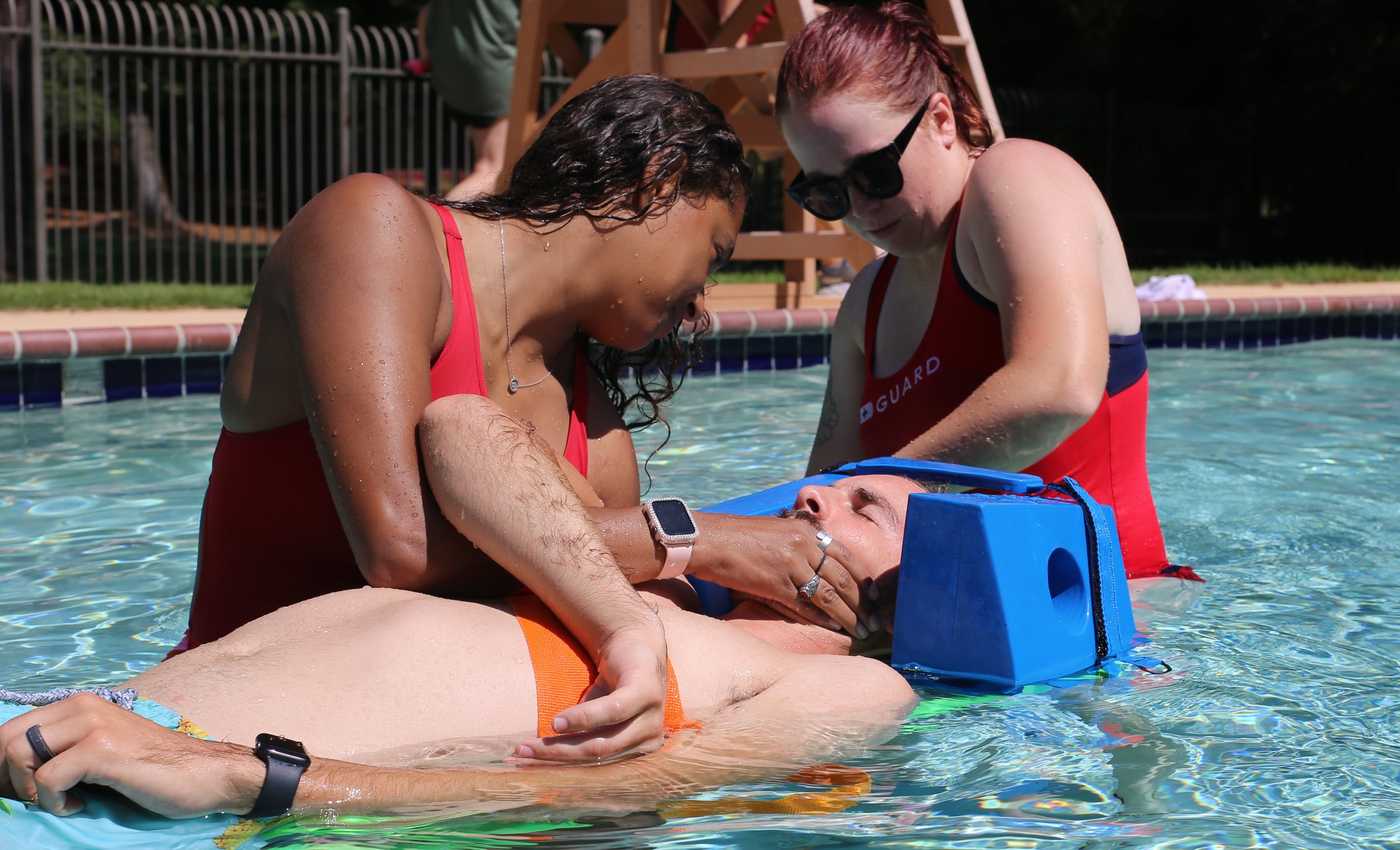Whether your goal is to work at a community pool, a resort beach, or a waterpark, American Lifeguard offers the skills, training, and nationally recognized certification you need. Lifeguard certification is more than a badge—it’s proof that you are trained, responsible, and prepared to protect lives. Through expert-led classes, CPR and first aid training, and specialized rescue techniques, you can confidently enter one of the most rewarding and respected professions in the aquatic industry.
How to Become a Certified Lifeguard
Becoming a certified lifeguard involves completing an accredited training program and passing both skills and knowledge assessments. Here’s the typical process:
- Meet Age Requirements – Most courses require you to be at least 15 years old.
- Pass the Pre-Course Swim Test – Demonstrate endurance, treading, and basic swimming techniques.
- Complete Lifeguard Certification Course – This includes in-water rescue techniques, CPR and first aid training, and surveillance skills.
- Pass Written and Practical Exams – These confirm your readiness for real-world emergencies.
- Maintain Certification – Lifeguard certificates typically expire after two years, requiring recertification.
With American Lifeguard, you can take a lifeguard certification course near me that meets national standards, ensuring you are prepared for any aquatic environment.
Choosing the Right Lifeguard Certification Course Near Me
When searching for a “lifeguard certification course near me,” focus on programs that are:
- Accredited and Recognized – Ensure your certification is accepted nationwide.
- Led by Experienced Instructors – Choose trainers with real-world lifeguarding backgrounds.
- Comprehensive in Curriculum – Covers pools, beaches, and open-water rescues.
- Flexible in Scheduling – Options for weekday, weekend, or intensive courses.
American Lifeguard partners with trusted organizations and training centers to provide local classes that fit your schedule and learning style.
The Rise of the Lifeguard Course Online Option
Today, blended learning formats allow you to complete much of your lifeguard course online, making training more convenient than ever. These programs typically combine:
- Online Modules – Theory-based lessons, safety protocols, and CPR instruction.
- In-Person Skills Training – Practical rescue drills, swimming assessments, and scenario-based learning.
This flexible approach reduces classroom time while still providing hands-on, real-life training, perfect for busy students or professionals seeking certification.
CPR and First Aid Training for Lifeguards
A lifeguard’s job doesn’t stop at pulling someone from the water—you must be able to provide life-saving care immediately. That’s why CPR and first aid training for lifeguards is a core component of all certification programs.
Skills covered include:
- Adult, Child, and Infant CPR
- Use of Automated External Defibrillators (AEDs)
- Treatment for Choking Victims
- Managing Shock, Cuts, and Broken Bones
These skills are transferable to any emergency, making you valuable both in and out of aquatic settings.
Specialized Lifeguard Training for Pools and Beaches
Different environments present unique challenges. Lifeguard training for pools and beaches prepares you to handle each with confidence:
- Pool Lifeguards – Focus on scanning techniques, short-distance rescues, and patron safety rules.
- Beach Lifeguards – Train for rip currents, large waves, long-distance swims, and environmental hazards.
American Lifeguard ensures you receive scenario-specific training, so whether you’re guarding a calm pool or a busy oceanfront, you’re ready for action.
The Benefits of Becoming a Lifeguard
Earning your lifeguard certification brings more than just job opportunities. Benefits include:
- Saving Lives – The most important and rewarding aspect of the job.
- Leadership Skills – Lifeguards are respected leaders in their communities.
- Physical Fitness – Training keeps you in peak condition.
- Career Advancement – Open pathways to roles like swim instructor, aquatic supervisor, or emergency responder.
- Transferable Skills – Communication, teamwork, and crisis management help in any profession.
Being a lifeguard is not just a summer job—it’s a stepping stone toward a lifetime of leadership and service.
Understanding Red Cross Lifeguard Certification
Many employers recognize and value Red Cross lifeguard certification for its rigorous standards and comprehensive curriculum. However, American Lifeguard certification offers similar national recognition while often providing more flexible training options, additional specialty modules, and competitive pricing. Both certifications prepare you for real-world emergencies, but American Lifeguard gives you the convenience of local and online blended courses.
Final Thoughts
Lifeguard certification is more than a requirement—it’s a commitment to public safety and professional excellence. American Lifeguard is here to equip you with the skills, confidence, and credentials to succeed, whether you’re guarding a quiet neighborhood pool or a bustling beach.
Author Bio:
Written by an aquatic safety and training specialist with years of experience in lifeguard education. Dedicated to helping aspiring and current lifeguards achieve certification through trusted programs like American Lifeguard, empowering them to protect lives and build rewarding careers in aquatic safety.



